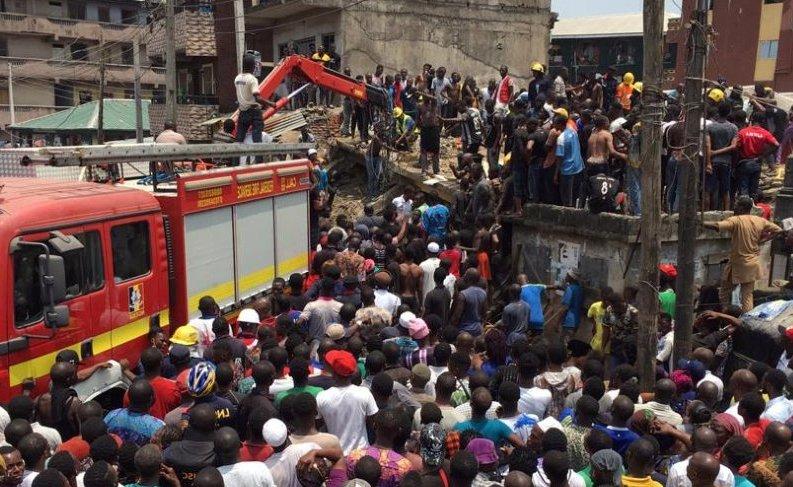Amid rising concerns over frequent building collapses in Nigeria, industry experts and regulatory bodies are urging the National Assembly to enact a National Building Code law to enforce stricter regulations in the construction sector.
This call was made during a national conference organized by the Standards Organisation of Nigeria (SON) in collaboration with the Federal Ministry of Industry, Trade, and Investment in Abuja. Themed “Adherence to Standard Practices: Bedrock of Sustainable Development in the Building/Construction Sector,” the conference gathered key players from across the industry to address critical safety and regulatory challenges.
A communique signed by SON Director General, Dr. Ifeanyi Okeke, emphasized the urgent need to reinstate SON’s presence at Nigeria’s ports. Thirteen years ago, a directive was issued to remove the organization from ports to ease business operations, but stakeholders argue that this decision has compromised safety. Without direct oversight at the ports, SON cannot physically inspect and verify construction materials before issuing Nigeria Conformity Assessment Programme (SONCAP) certificates, increasing the risk of substandard materials flooding the market and endangering public safety.

According to SON, the recurring incidents of collapsed buildings stem from non-compliance with established construction standards, the use of inferior materials, and the engagement of unqualified personnel. While Nigeria has adopted several foreign building codes, experts stress that these regulations must be adapted to local environmental and economic conditions to be truly effective. Given the country’s current economic challenges and inflation-driven spikes in construction material prices, adhering to quality standards has become increasingly difficult for developers.
The conference participants strongly advocated for legal enforcement to ensure only certified professionals handle structural designs and construction projects. They recommended that SON enforce stricter certification requirements for all building materials used in Nigeria. Additionally, they called for laws that impose severe penalties on developers, contractors, and clients who fail to comply with safety regulations. A significant proposal from the conference was the mandatory routine integrity testing of buildings, particularly when modifications are made that alter their original structural intent.
Dr. Okeke noted that Nigeria’s rapid urbanization and population growth have placed unprecedented pressure on the construction sector, making quality control more critical than ever. While the demand for affordable housing continues to rise, it is imperative to balance accessibility with safety and sustainability. Despite numerous public awareness campaigns led by SON, many industry stakeholders still lack sufficient knowledge of the standards required for building safe and durable structures.

Another major recommendation from the conference was ensuring that professionals in the building sector operate strictly within their areas of expertise. Contractors, suppliers, and artisans were urged to commit to using only approved materials and strictly adhering to best practices. The participants also emphasized the need for educational institutions to integrate construction safety standards into their curricula to bridge the knowledge gap among future professionals. SON was further encouraged to maintain its active role in international standardization bodies like the African Organisation for Standardisation to align Nigeria’s construction regulations with global best practices.
With the frequency of building collapses posing an ever-growing risk to lives and property, stakeholders insist that immediate government action is necessary. The passage of the National Building Code into law is seen as a critical step toward enhancing construction safety and restoring public confidence in the industry. As discussions continue, the focus remains on the National Assembly to implement decisive policies that will prevent further tragedies and create a safer built environment for all Nigerians.



